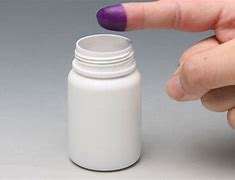Majority Leader Osei-Kyei-Mensah Bonsu has urged the Electoral Commission (EC) to reconsider its decision to abandon the use of indelible ink.
Additionally, he has advised the commission against implementing its proposed plan to close polls at 3 PM.
“If you want to end at 3, instead of starting at 7 and beginning at 8, you create chaos. If we are sure that we will start early and then create many more polling stations such that by 2 PM, 90 or 95 percent have voted, why not? But we should not create a situation where instead of cleaning up the system we rather end up creating chaos.
“Another thing I think the EC may have to have a second look at is their discontinuance of the usage of inedible ink, I think they should go back and reconsider it.”
Osei-Kyei-Mensah Bonsu
Earlier, the Electoral Commission (EC) declared the discontinuation of indelible ink usage in district-level elections and forthcoming polls. Jean Mensa, the Chairperson of the Commission, cited this decision as part of ongoing initiatives to improve the electoral process and implement a more robust identification system.

During a media briefing on Monday, December 18, she clarified that the biometric identification system is designed to detect any instances of multiple registrations. Consequently, individuals who have been verified and voted once are prevented from casting another vote, reinforcing the integrity of the electoral process.
“The issue of indelible ink, the question is when we were not doing biometric, we were basically using your face, your card. We look at your face and we say this picture looks like you. The biometric technology makes it difficult for a person who has been verified and cast their vote to come a second time.”
Jean Mensa
“So, there is no need for indelible ink. Once you have been verified, it goes into the system and you cannot come back a second time”, she added.
Indelible Inks Role In Election
Indelible ink holds a critical role in the electoral process, serving as a safeguard against electoral fraud and ensuring the integrity of the voting system. The use of indelible ink, a semi-permanent substance that cannot be easily removed, has become a standard practice in elections worldwide.

One of the primary purposes of indelible ink is to prevent multiple voting by the same individual. Once a voter casts their ballot and receives the indelible ink mark on their finger, it becomes a visible and indisputable sign that they have participated in the democratic process. This simple yet effective method acts as a deterrent against individuals attempting to vote more than once, contributing to the overall fairness and transparency of elections.
Additionally, indelible ink helps maintain the anonymity of voters. Instead of relying solely on electronic or paper records, the physical mark ensures that the act of voting is a personal and private choice. This anonymity is fundamental to the democratic principle of free and fair elections, allowing citizens to express their political preferences without fear of retribution or coercion.
The indelible ink’s role extends beyond the polling station, providing a means for election observers, political parties, and the public to visually confirm the legitimacy of the voting process. By visibly marking those who have already voted, indelible ink enhances the overall transparency of the electoral system and instills confidence in the democratic outcome.
While technological advancements have introduced electronic verification methods, the simplicity and reliability of indelible ink make it a cost-effective and widely accepted tool in election management. Its use transcends cultural and technological barriers, ensuring its relevance in diverse electoral contexts.
READ ALSO: Addressing The Economic Toll Of Low Voter Turnout In Ghana’s Elections





















